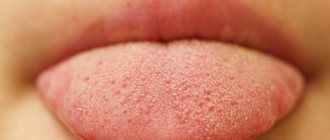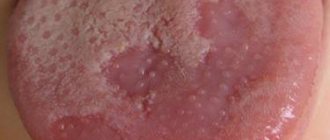According to scientists, people choose their soulmate based on body odor. It is believed that it is the sense of smell that allows you to select a partner with the most suitable set of genes. After all, a person is capable of secreting pheromones: substances that arouse interest in the opposite sex. However, there are situations when a particular odor emanating from the body should be perceived as a distress signal. After all, it can indicate the presence of a fairly serious disease. Doctors say that some diseases have their own “flavor”. Exactly how diseases smell and what you should pay attention to when a new smell appears - in the material AiF.ru.
How does the smell appear?
Fat metabolism disorders are the main reason why a person smells of acetone. What does it mean? During the metabolism of fatty acids, their breakdown products are formed - ketone bodies. They are the ones that give off the acetate smell.
Normally, the level of ketone bodies in the body is very low. They are quickly oxidized in the muscles and lungs, releasing large amounts of energy.
If a person smells like acetone, this means that ketones are accumulating in the body. This is observed when there is a violation of carbohydrate metabolism. Ketone bodies negatively affect the acid-base balance in the body. They shift the pH to the acidic side. Doctors call this disorder ketoacidosis. This condition poses a great health risk. Excess ketones have toxic effects on various organs.
The smell of acetone from the mouth of men
Any pathological processes in the body are reflected in the chemical composition of urine. In males, urine may have an acetate odor due to the development of infectious diseases:
- cystitis;
- urethritis;
- pyelonephritis;
- prostatitis.
When the prostate gland is infected by bacteria, the urine becomes cloudy and emits a strong chemical odor. Having discovered such changes in the body, a man should consult a doctor - a urologist, andrologist or venereologist.
One of the reasons why an adult man’s mouth may smell like acetone is the development of a malignant tumor. Halitosis occurs when the tumor is localized in the area of the bladder, prostate gland, or kidney.
A change in the composition and smell of urine does not always indicate a pathological process in the body. An acetone odor may emanate from the mouths of adult men and women after eating spices or taking certain synthetic nutrient supplements.
Possible reasons
What disease causes a person to smell of acetone? The accumulation of ketones can occur with various ailments. Most often, ketoacidosis develops against the background of the following pathological conditions:
- diabetes mellitus;
- pathologies of the liver and kidneys;
- disorders of the thyroid gland;
- infectious diseases;
- deficiency of carbohydrates in food;
- long fasting.
Next, we will consider in detail the above diseases and methods of treating them.
Diabetes
Why does a person's breath smell like acetone? Most often this is associated with diabetes. With this disease, the patient has reduced production of insulin by the pancreas. This hormone is necessary for the processing and absorption of glucose, which serves as a source of energy for the body. Insulin deficiency leads to serious consequences. Unsplit glucose is no longer absorbed by tissues. The body has to take energy from proteins and fats. Active breakdown of lipids occurs, which causes excess ketones.
If a person with diabetes smells of acetone, this is an alarming sign. Such symptoms indicate a decompensated form of the pathology, which is difficult to treat. In severe cases, the patient falls into a ketoacidotic coma. This is a life-threatening condition.
Diabetic ketoacidosis is accompanied by other symptoms:
- thirst;
- frequent and excessive urination;
- severe weakness;
- drying of mucous membranes and skin;
- drowsiness;
- nausea and vomiting;
- lethargy;
- headache.
Ketoacidosis in diabetes is treated in a hospital setting. If the patient is in a coma, he is placed in the intensive care unit. Patients are given infusion solutions, this helps eliminate metabolic disorders. The optimal daily dosage of insulin is selected for the patient. Therapy is carried out under the control of the level of sugar and ketone bodies in plasma and urine.
Causes of acetone taste in the mouth
Low calorie diet
With a long-term restriction in carbohydrates, which are the main “fuel material,” the body begins to use reserves of proteins and fats to obtain energy.
Massive breakdown of fats is accompanied by the formation of ketone bodies (hydroxybutyric, acetoacetic acids), which determine the characteristic taste. These substances penetrate into saliva, so a person is constantly bothered by an irritating chemical taste. The symptom is detected in women following the Kremlin, French and other low-calorie diets. Acetone in the mouth is most noticeable in the morning; after breakfast and brushing your teeth, the intensity of taste discomfort decreases. In severe cases, the urine also takes on the smell of acetone; the sour aroma of “pickled apples” comes from the breath and is noticeable by others at a distance of up to 1 m. The accumulation of ketone bodies is toxic to the brain, so you should immediately consult a doctor.
Alcohol
Ethanol contained in alcoholic beverages changes the normal course of biochemical reactions, activates catabolic processes and the synthesis of ketone compounds. An unpleasant taste appears in the mouth the next morning after a heavy meal in combination with alcohol intoxication, while the taste of acetone is mixed with bitterness or a sour aftertaste, so a person does not always detect a specific chemical taste. The disorder goes away on its own within 1 day.
In people suffering from alcoholism, the taste of acetone is observed regularly, more often in the morning. Its appearance is caused by severe disorders of the liver and digestive system, and a lack of vitamins. The condition is aggravated by drinking large amounts of alcohol on an empty stomach. In this case, in addition to the acetone taste, a sharp chemical odor from the mouth, frequent and noisy breathing, and impaired consciousness may appear.
Heavy physical activity
An increase in ketone bodies is possible in professional athletes, men involved in bodybuilding, during the drying period. When carbohydrates are limited, the body begins to actively consume fats to cover increasing energy needs. An unpleasant taste can occur at any time of the day. The symptom is short-lived and disappears after rinsing the mouth with water or eating. A constant strong taste of acetone is an indication for a visit to a specialist.
Acetonemic syndrome
The condition is typical for childhood, most often its symptoms are detected in children 5-6 years old. The child becomes lethargic and complains of nausea; older children notice an unusual taste in the mouth that they cannot clearly describe. Against the background of these symptoms, repeated vomiting occurs; the vomit has a specific acetone odor. If the taste of acetone and episodes of vomiting appear periodically for no apparent reason, they speak of an idiopathic version of the syndrome.
Secondary acetone syndrome, which is caused by somatic or infectious diseases, often occurs. In this case, against the background of general malaise, children complain of an unpleasant taste of acetone in the mouth, severe nausea, and patients refuse to eat. Vomiting begins, after which the child becomes even worse. The disorder is sometimes observed during high fever following tonsil removal.
Pregnancy
Hormonal changes in the body of a pregnant woman are common causes of the taste of acetone in the mouth. Sometimes the symptom is observed during normal gestation, more often in the first trimester, when various changes in taste sensations occur. Pregnant women note that a taste appears after drinking certain foods, coffee or tea. The symptom does not require treatment and usually disappears on its own in the second half of gestation.
Pathological reasons usually lead to the sensation of acetone taste in the mouth. Most often it develops with early toxicosis. Pregnant women complain of a strong unpleasant taste that occurs against the background of painful nausea and vomiting. Due to forced fasting, proteins and fats are broken down in the body, so with prolonged toxicosis, taste discomfort increases. Sometimes the taste of acetone develops in the 2-3 trimesters, which is associated with gestosis in pregnant women.
Diabetes
The taste of acetone is not typical for the initial period of the disease. More often it occurs with long-term diabetes mellitus against the background of intercurrent diseases. The unpleasant taste is accompanied by severe dry mouth and excruciating thirst, forcing patients to drink 5-7 liters of water per day. The sensation of taste bothers a person constantly; even brushing your teeth and eating cannot get rid of it. The symptom is much more often detected in young people who have type 1 diabetes.
Ketoacidosis
The accumulation of ketone compounds in the blood in the complete absence of insulin is the most dangerous complication of diabetes mellitus. Predisposing causes: missing insulin injections, heavy physical work, fever. The severity of ketoacidosis increases gradually over 1-2 days: first, a faint taste of acetone appears, thirst increases, then general weakness increases, breathing becomes frequent and noisy, and an acetone smell is heard from the exhaled air.
Ketoacidosis is often the first manifestation of diabetes mellitus in children. Symptoms occur in the midst of complete well-being; the child often cannot describe the unpleasant taste that appears. The condition worsens very quickly, over several hours. Parents pay attention to the strong acetone odor from the mouth. If medical care is not provided, loss of consciousness and the development of a precomatous state may occur.
Thyrotoxicosis
An increase in the level of thyroxine in the blood leads to an acceleration of metabolism and intensive breakdown of protein compounds. Patients with hyperthyroidism note an unpleasant acetone taste that appears for no reason. The symptom is observed periodically, the taste of acetone decreases after brushing the teeth. The severity of uncomfortable taste sensations increases with dehydration and prolonged exposure to the sun in the hot season.
Liver pathology
If the liver parenchyma fails, the neutralization of toxic compounds in the body is impaired, and under-oxidized metabolic products accumulate in the blood. Chemical compounds penetrate the salivary glands and are released into the oral cavity, causing an unpleasant taste, described by patients as the taste of acetone, a solvent. Chronic liver damage is characterized by the periodic appearance of symptoms, often against the background of errors in diet.
In acute liver failure, symptoms occur within a few hours. Unpleasant sensations in the mouth are accompanied by severe weakness and disturbances of consciousness, yellowing of the skin. The patient's breath takes on a typical sweetish "liver" chemical odor. The main reasons that provoke liver failure and the appearance of acetone taste in the mouth:
- Viral liver diseases
: fulminant form of hepatitis B, chronic hepatitis C, cytomegalovirus infection. - Toxic damage to the liver parenchyma
: exposure to carbon tetrachloride, tetraethyl lead, amanitin (when consuming toadstool). - Complications of pharmacotherapy
: Reye's syndrome, paracetamol overdose, long-term use of antibiotics and sulfonamides.
Kidney failure
The taste of acetone always appears when kidney function is impaired, since the body cannot eliminate toxic ketone bodies. The symptom is more often detected in the chronic form of the disease, when gradual intoxication of the body occurs with the products of nitrogen metabolism. The unpleasant taste persists constantly. The smell of acetone in the exhaled air can be felt even from a distance. The unpleasant taste causes nausea and loss of appetite.
Sometimes the presence of an acetone taste indicates the development of acute renal failure. Patients feel a strong chemical taste in the mouth, which is combined with repeated vomiting and dryness of the oral mucosa. In addition to atypical taste discomfort, the patient notices a decrease in the amount of urine up to a complete absence of urination during the day.
Mental disorders
People with schizophrenia often complain of a chemical taste in their mouth. The symptom is associated with delusional ideas of poisoning, when a person believes that neighbors or loved ones want him dead. This results in an imaginary acetone taste, usually after ingestion of food or water. In elderly patients, unusual taste sensations that appear without an obvious reason can be caused by senile dementia and progressive disruption of the functioning of all parts of the nervous system.
Rare causes
- Stomach diseases
: pernicious anemia, chronic hypoacid gastritis, functional dyspepsia. - Vascular lesions
: portal vein thrombosis, disseminated intravascular coagulation syndrome, pylephlebitis. - Infectious processes
: sepsis, bacterial meningitis, severe forms of intestinal infections. - Severe complications of pregnancy
: acute fatty liver, HELLP syndrome. - Carrying out fasting
and
dietary therapy
.
Liver diseases
If a person smells of acetone when breathing, this may indicate liver pathology. It is in this organ that the process of breakdown of fatty acids and the formation of ketone bodies occurs. When liver cells are damaged, lipid metabolism is disrupted. This leads to the accumulation of ketones.
Most often, ketoacidosis occurs with hepatitis. Liver inflammation is accompanied by the following symptoms:
- yellowing of the mucous membranes and whites of the eyes;
- skin itching;
- a feeling of heaviness on the right under the ribs;
- fatigue;
- nausea;
- poor appetite.
The patient is prescribed hepatoprotectors, antiviral drugs, as well as a diet limiting spicy, salty and fatty foods.
Other options
As soon as your body odor has changed, turning into something intolerable, you should visit a doctor as soon as possible. After all, a different smell can indicate various pathologies, some of which are quite difficult to treat.
| Body odor | Possible disease |
| Fish | Metabolism problems |
| Putrid or sweetish | Diphtheria |
| Sheep wool (wet) | Adrenal gland disorder |
| Hydrogen sulfide | Ulcer, dyspepsia |
| Rotten Meat | Oncological problems |
| The smell of old age | Problems with hormonal levels |
| Rotten apples | Pre-hypoglycemic coma (requires immediate hospitalization) |
Renal pathologies
Why does a person's body smell like acetone? This may be due to kidney disease. With nephrosis, metabolism is disrupted. As a result, the excretion of ketones through the kidneys increases. The acetate odor comes from the patient's urine and sweat.
Nephrosis is a disease accompanied by degenerative changes in kidney tissue. The signs of pathology are as follows:
- increased thirst;
- weakness;
- swelling of the face and limbs;
- decreased amount of urine;
- joint pain.
Without treatment, this disease can lead to kidney failure. Usually a person smells of acetone in the early stages of the disease. As the pathology develops, an ammonia smell appears. This indicates a significant deterioration in kidney function.
The patient is prescribed a diet with a high protein content in food and limited salt and water. Corticosteroids and diuretics are indicated.
Thyroid dysfunction
The appearance of a ketone odor may be one of the signs of thyrotoxicosis. With this pathology, the thyroid gland produces an excess amount of hormones. This leads to the following symptoms:
- severe weight loss;
- bulging eyes;
- enlargement of the front of the neck (in severe cases, a goiter appears);
- tachycardia;
- nervousness;
- excessive sweating and feeling hot;
- fatigue;
- tremor of the limbs.
Why does a person smell like acetone with thyrotoxicosis? Thyroid hormones stimulate the fat burning process. Their excess leads to accelerated lipid metabolism. As a result, the patient loses a lot of weight, and ketone bodies accumulate in his body. This is what causes the smell.
A patient with thyrotoxicosis needs to take iodine-based medications. After normalization of the thyroid gland, the unpleasant odor disappears.
If the problem is in the nose
Most often, the smell of acetone in the nose is associated with foreign bodies entering the nasal passage.
Moreover, even after the object has been successfully removed, unpleasant sensations may persist for some time.
If the discomfort does not go away for a long time, you need to make sure that there are no wounds on the mucous membrane that could become infected.
- Smells in the nose: causes, possible diseases, treatment methods, reviews
By the way, the second most common reason is damage to the mucous membrane and the development of small foci of infection.
In this case, it is necessary to treat the infection with antiviral or antibacterial drugs. Some of them will have to be taken orally, others are available in the form of a spray and drops.
Remember! One of the reasons that causes unpleasant odors in the nose is ozena: a complex but, fortunately, rare disease.
Infections
If a person smells of acetone on their body, this may be a sign of infectious diseases. Such pathologies are accompanied by severe intoxication of the body. The ketone odor usually appears during the acute stage of the disease, when the patient has a sharply elevated temperature.
Most often, ketoacidosis is observed with rotavirus infection. This disease is commonly called “stomach flu”. It is most often transmitted through dirty hands, less often through airborne droplets. Signs of infection with rotavirus are as follows:
- sore throat (in the first days of illness);
- diarrhea (the color of feces becomes gray);
- fever;
- frequent vomiting;
- severe weakness.
Why does a person’s body smell like acetone during rotavirus infection? During vomiting and diarrhea, the patient loses a large amount of fluid. In addition, fever is accompanied by severe sweating. This leads to dehydration and poor carbohydrate metabolism. Ketone bodies begin to accumulate in the body, which is the cause of the smell.
No special drugs have been developed against rotavirus. Therefore, treatment can only be symptomatic. During illness, you should try to drink as much fluid as possible. This will help avoid dehydration and the accumulation of ketone bodies.
Smell test
Doctors have long ago begun to use the unpleasant aroma emanating from the human body as an option for the primary diagnosis of various diseases. After all, a repulsive amber is a clear signal that metabolic processes have been disrupted. This often occurs against the background of the development of certain pathologies.
Question and Answer Is it impossible to cure all people of all diseases? The bacteria that colonize the skin survive the previous colonies that were “healthy”, and the waste products of the new ones begin to smell differently.
Poor nutrition
Sometimes it can be very difficult to determine why a person smells of acetone. After all, the examination does not reveal any pathologies in him. In this case, you need to pay attention to your diet. The cause of an unpleasant odor may be a diet with insufficient amounts of carbohydrate foods.
Quite a few people are into ketogenic diets these days. This diet involves a sharp restriction of carbohydrates and a large amount of fat in the diet.
The keto diet is believed to lead to rapid weight loss. However, such a menu can provoke serious metabolic disorders. With a carbohydrate deficiency, active fat burning occurs. In the process of accelerated lipid metabolism, an excess of ketone bodies is formed, which do not have time to be excreted from the body. These substances negatively affect the tissues of the liver, kidneys and pancreas.
If a person smells of acetone, then he needs to immediately review his menu. Otherwise, it can lead to serious pathologies. An acetate smell signals a severe carbohydrate deficiency. In this case, you need to urgently stop following the ketogenic diet.
It is not uncommon for a person to smell like acetone on their breath during a complete fast. The ketone odor is formed by the same mechanism as in diabetes mellitus. During a long period of fasting, the body begins to use its own fat reserves as an energy source. This releases a large number of ketone bodies. These substances have a toxic effect on organs. Therefore, it is better to avoid starvation diets. Excessively long breaks between meals should also be avoided.
Expert opinion
Mehman Mamedov, professor, doctor of medical sciences, expert of the National Health League:
— The body smells due to various metabolic disorders. For example, due to impaired glucose metabolism, the number of ketone bodies increases and their accumulation on the skin produces an odor. This is typical for decompensated diabetes. Urea odor is end-stage renal failure. The characteristic smell of the skin, as a rule, is a sign of a malfunction of organs associated with metabolism - these are the kidneys, lungs, and liver. Ulcerative-inflammatory skin diseases can also smell.
Ketone odor in children
Acetate odor in children can be caused by the same diseases as in adults. Therefore, the child should be shown to a doctor. It is important to remember that diabetes often begins to develop in childhood.
However, in many cases the odor is not associated with pathology. In childhood, ketone bodies oxidize very slowly. This leads to the smell of acetone. This symptom is often observed during puberty, especially during long breaks in food intake. Sometimes the smell appears in a child during times of stress. Doctors suggest that those children whose mothers abused protein foods during pregnancy are prone to ketoacidosis.
In childhood, acetonemic syndrome is also observed. This pathology is characterized by the accumulation of ketones in the body and an acetate odor from the mouth and skin. The causes of the disease have not been precisely established. Acetonemic syndrome occurs in the form of attacks. Suddenly the child experiences severe vomiting, motor and mental restlessness, and headaches. Then this state is replaced by lethargy and drowsiness. Such children are advised to eat a diet high in carbohydrates and limited in fatty foods. To combat dehydration, infusion solutions are administered. Typically, signs of pathology disappear on their own after the child turns 12-13 years old.
During which diseases does it appear?
Various endocrine pathologies lead to the appearance of the smell of acetone in humans, including those associated with pancreatic dysfunction (for example, diabetes mellitus); problems with the digestive system, impaired functioning of the kidneys and liver; infection by bacteria, microbes and viruses and others. It has been established that an increase in the level of acetone in urine and blood, the smell of acetone appears in diseases such as:
- ketoacidosis coma;
- intoxication of the body;
- diabetes;
- acetonomy syndrome;
- diseases of the thyroid gland (for example, hyperthyroidism, a complication of diffuse toxic goiter);
- renal failure, pyelonephritis;
- liver failure;
- liver injury, hepatitis, liver cirrhosis, cholecystitis;
- rapid dehydration due to intestinal infections.
Diagnostics
If a person smells of acetone from his mouth or body, this may be a sign of dangerous diseases. It is necessary to undergo diagnostics as soon as possible to identify the cause of ketoacidosis. Which doctor should you visit? First you need to see a therapist. If necessary, the general practitioner will refer the patient to a more specialized specialist.
If ketoacidosis is suspected, the following examinations are prescribed:
- blood test for biochemical parameters;
- urine test for ketone bodies;
- blood test for thyroid hormones;
- Ultrasound of the kidneys and liver.
During the appointment, the doctor also finds out the patient’s dietary habits. After all, ketoacidosis is often triggered by a deficiency of carbohydrates in food.
Nowadays, special glucometers with the determination of ketone bodies are produced for diabetics. This helps to detect signs of ketoacidosis in a timely manner at home.
Smell of a cat
There are situations when a person begins to smell of cat feces. In this case, the body also signals about possible problems. For example, the smell of urea appears when:
- Kidney and liver diseases
- Pathologies of the endocrine system and VSD
- Tuberculosis
- Obesity
- Disturbances in the digestive system
Among the common causes of this “aroma” are kidney problems. After all, if their work malfunctions, the entire body as a whole reacts painfully to this. Moreover, you should understand that the smell of urea in this case will be strong, and it will be impossible to cope with it with improvised means: deodorants do not use this.
The problem develops due to the fact that protein breakdown products are excreted through the sebaceous glands. Doctors in this case talk about uricidosis, which can result from chronic nephritis, pyelonephritis and uremia.
Article on the topic
Fresh breath. How to eliminate bad breath
How to get rid of odor
What to do if a person smells of acetone? You can completely get rid of an unpleasant odor only after eliminating its cause. Therefore, first of all, you need to treat the underlying pathology and avoid too strict diets.
The following recommendations from doctors will also help reduce the odor:
- You should try to consume enough fluid.
- Long breaks between meals should be avoided.
- You should shower regularly and use antibacterial soap.
- Wearing clothes and underwear made from natural fabrics will help reduce sweating.
- It is recommended to use deodorants with zinc and aluminum.
The acetone smell is a rather dangerous symptom that should never be ignored. Timely treatment will help avoid intoxication of the body and damage to organs from ketones.
The smell of sweat: we can do without it
There is such a problem that it is not customary to discuss out loud, but it is customary to wrinkle your nose when entering public transport. This is when it comes to people you don’t know well. The same problem will upset any woman who notices dark stains around the armpits on her beloved’s snow-white shirt. And the problem will also make a man feel embarrassed when he takes off his shoes in a train compartment and understands from the faces of his fellow passengers that he urgently needs to put his shoes back on. Excessive sweating in men. From what? Why? How to fight?
The term for excessive sweating is hyperhidrosis. But this is a medical formulation. It concerns pathological conditions when a person sweats almost from head to toe or, regardless of the season, profusely and uncontrollably. Only a doctor can help here, since now there are hundreds of ways to combat hyperhidrosis - from drugs to microsurgical interventions. And these remedies are very, very effective. Again, a doctor will help you understand the difference between pathological or normal sweating. But this is for those who are very worried. But in everyday cases you need to understand each area separately. So:
Armpits
For reference: sweating in the armpits is normal. If you exercise, drink hot liquids or eat spicy foods, your armpits will be the first to react. And the more intense the load or the greater the amount of pepper in food, the more sweat the glands secrete.
How to fight? Elementary. Don't sweat. Seriously. Dress according to the season, watch your diet. And use antiperspirants. A little trick: it’s better to apply antiperspirant after a shower before bed, so it will be more effective, and in the morning you can consolidate the result with another application. And the phrase “clean, dry armpits” is not a publicity stunt, but a hygienic necessity of the 21st century. This is a remark for those who believe that shaving their armpits is not a man’s business.










